
Kod: 09689789
North British Review, Vol. 23 of 28
Autor Unknown Author
Excerpt from The North British Review, Vol. 23 of 28: February and May, 1858 Lord Stanhope's able history is a history of the nation, its wars, and its internal policy. Its heroes are the sovereign and the Ministers, who conduc ... więcej
- Język:
 Angielski
Angielski - Oprawa: Miękka
- Liczba stron: 640
Wydawca: Forgotten Books, 2015
- Więcej informacji o książce

31.79 €
Dostępność:
50 % szansa Otrzymaliśmy informację, że książka może być ponownie dostępna. Na podstawie państwa zamówienia, postaramy się książkę sprowadzić w terminie do 6 tygodni. Gwarancja pełnego zwrotu pieniędzy, jeśli książka nie zostanie zabezpieczona.
Otrzymaliśmy informację, że książka może być ponownie dostępna. Na podstawie państwa zamówienia, postaramy się książkę sprowadzić w terminie do 6 tygodni. Gwarancja pełnego zwrotu pieniędzy, jeśli książka nie zostanie zabezpieczona.Przeszukamy cały świat
Zobacz książki o podobnej tematyce
Bon podarunkowy: Radość gwarantowana
- Podaruj bon o dowolnej wartości, a my się zajmiemy resztą.
- Bon podarunkowy dotyczy całej naszej oferty.
- Możesz wydrukować elektroniczny bon z e-maila a następnie przekazać go obdarowanemu.
- Ważność bonu wynosi 12 miesięcy od daty wystawienia.
Powiadomienie o dostępności
Wpisz swój adres e-mail, aby otrzymać od nas powiadomienie,
gdy książka będzie dostępna. Proste, prawda?
Więcej informacji o North British Review, Vol. 23 of 28
Za ten zakup dostaniesz 80 punkty
 Opis
Opis
Excerpt from The North British Review, Vol. 23 of 28: February and May, 1858 Lord Stanhope's able history is a history of the nation, its wars, and its internal policy. Its heroes are the sovereign and the Ministers, who conducted the administration of the empire, to whom we ascribe our laws and treaties, and the political adversaries, who, by their counterpoise, checked the Government at every step. It has nothing to do directly with the people itself, which either party affected to represent. But the great peculiarity of the period embraced in these volumes is, that, while it forces aside all the laws of history, and offers personal dislike and resentments as acknowledged substitutes for political principles, a profound undertone of public feeling and opinion may yet be traced as a permanent, though apparently only occasional cause, using for its own purposes the private wrongs and schemes of party leaders, and quietly ignoring, or treating as nought, the obstinacy of bought Parliamentary majorities. The force of public opinion, which has had always a real existence in England, explains what else would be obscure, - the gradual success of Opposition against all the influence of Ministers in the most corrupt of Parliaments. For corrupt it was. Walpole himself was untainted with dishonesty, yet his riotous way of living - his galleries at Strawberry Hill - show what a misty idea persons then had of the distinction of public and private resources. The greatness of the secret service fund, and the continual increase of-new and sinecure posts, prove that the kingdom had to pay for the luxury of its recognised rulers. The same age which saw the exposure of Craggs, was scarcely likely to be free from innumerable instances of corruption in the lower ranks of political life, - the more so when we consider the profusion of boroughs into which the nominees or the scions of rich families were thrust as a provision for life, without respect to their qualifications for a regular and legitimate rise by statesmanship as a profession. Shame, and the intuitive fear of staying in a falling house (though this desertion was itself the occasion of the ruin), at last turned Walpole's majorities into a minority. The country had an instinct that things were not as they ought to be, though Walpole's government was as good, nay, probably much better than Pulteney's would have been. It was fighting the battle against the opposition of the practice introduced by 1689, to the theory which that event had established. For the destruction of the tyranny of the great old Whig houses, it used the pique and jealousies of the same order. For these reasons, it selected a Whig of the first rank to overturn a system of Whig oligarchy, and overlooked the fact that his patriotism had been directed against his old friend by that friend's ingratitude, - furthermore, accepted his motley band of Jacobites or ejected placemen as leaders in the people's cause; for these reasons, it overlooked is avarice and inconstancy of purpose (not, however, of end), and wept about his sickbed at Ingestre; for these reasons, Oxford ran riot whenever the professed Revolutionist triumphed; and the leader of Piccadilly was the favourite alike of the City and of the petty former. About the Publisher Forgotten Books publishes hundreds of thousands of rare and classic books. Find more at www.forgottenbooks.com
 Szczegóły książki
Szczegóły książki
Kategoria Książki po angielsku Literature & literary studies Prose: non-fiction Literary essays
31.79 €
- Pełny tytuł: North British Review, Vol. 23 of 28
- Podtytuł: February and May, 1858 (Classic Reprint)
- Autor: Unknown Author
- Język:
 Angielski
Angielski - Oprawa: Miękka
- Liczba stron: 640
- EAN: 9781330794777
- ISBN: 9781330794777
- ID: 09689789
- Wydawca: Forgotten Books
- Waga: 844 g
- Wymiary: 229 × 152 × 33 mm
- Data wydania: 06. July 2015
Ulubione w innej kategorii
-

Things I Don't Want to Know
10.79 € -24 % -

Republic
6.85 € -27 % -

In Search of Our Mother's Gardens
11.29 € -28 % -

Slouching Towards Bethlehem
17.55 € -3 % -

Upstream
14.32 € -21 % -

Prince
6.85 € -26 % -

WHITE ALBUM: ESSAYS
15.64 € -14 % -

Against Interpretation and Other Essays
13.21 € -22 % -

Tolkien On Fairy-Stories
10.29 € -28 % -

Complete Works of Oscar Wilde
15.23 € -22 % -

Tree and Leaf
11.09 € -22 % -

Social Contract
5.84 € -26 % -

Room of One's Own
7.26 € -28 % -

Species of Spaces and Other Pieces
12.81 € -36 % -

Natural History
13.41 € -27 % -
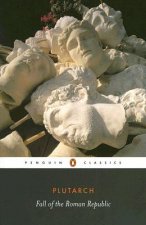
Fall of the Roman Republic
12.91 € -32 % -

Spiritual Emerson
11.19 € -21 % -

On Writing
10.69 € -20 % -

Too Much and Not the Mood
13.82 € -31 % -

De Profundis and Other Prison Writings
9.88 € -26 % -

Why I Write
8.97 € -22 % -

Nature and Other Essays
6.55 € -28 % -

No Time To Spare
15.94 € -

A Cup of Sake Beneath the Cherry Trees
3.52 € -23 % -

Dark Powers of Tolkien
9.78 € -10 % -

Anatomy Of Melancholy
29.87 € -11 % -

The Gifts of Reading
3.42 € -13 % -

Essays
10.29 € -28 % -

King Harald's Saga
11.29 € -28 % -

All You Need to Know About the Music Business
22.30 € -2 % -

Love
11.29 € -28 % -

Create Dangerously
8.67 € -16 % -

Hunger
11.60 € -21 % -

Tale Of Genji
30.17 € -28 % -

Essays in Idleness
10.29 € -28 % -

Love That Story
13.31 € -22 % -

Gardening without Work
17.55 € -2 % -

Walden and Civil Disobedience
10.29 € -28 % -
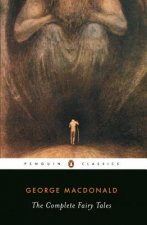
Complete Fairy Tales
9.28 € -28 % -

I Remember
17.05 € -19 % -

Confessions of an English Opium Eater
9.28 € -28 % -

Shooting an Elephant
10.79 € -19 % -

Empathy Exams
11.29 € -28 % -
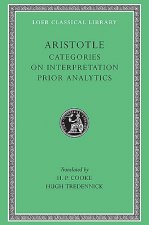
Categories. On Interpretation. Prior Analytics
31.58 € -10 % -
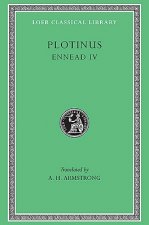
Ennead
31.58 € -10 % -

Dreams Must Explain Themselves
19.37 € -27 % -
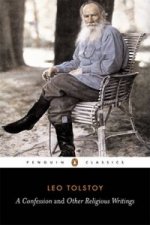
Confession and Other Religious Writings
11.29 € -28 % -
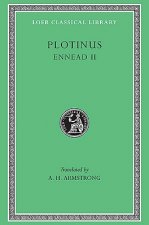
Ennead
36.02 € -

Essays and Letters
15.23 € -28 %
Osobní odběr Bratislava a 2642 dalších
Copyright ©2008-24 najlacnejsie-knihy.sk Wszelkie prawa zastrzeżonePrywatnieCookies






 Vrácení do měsíce
Vrácení do měsíce Zdarma od 49.99 €
Zdarma od 49.99 € 02/210 210 99 (8-15.30h)
02/210 210 99 (8-15.30h)